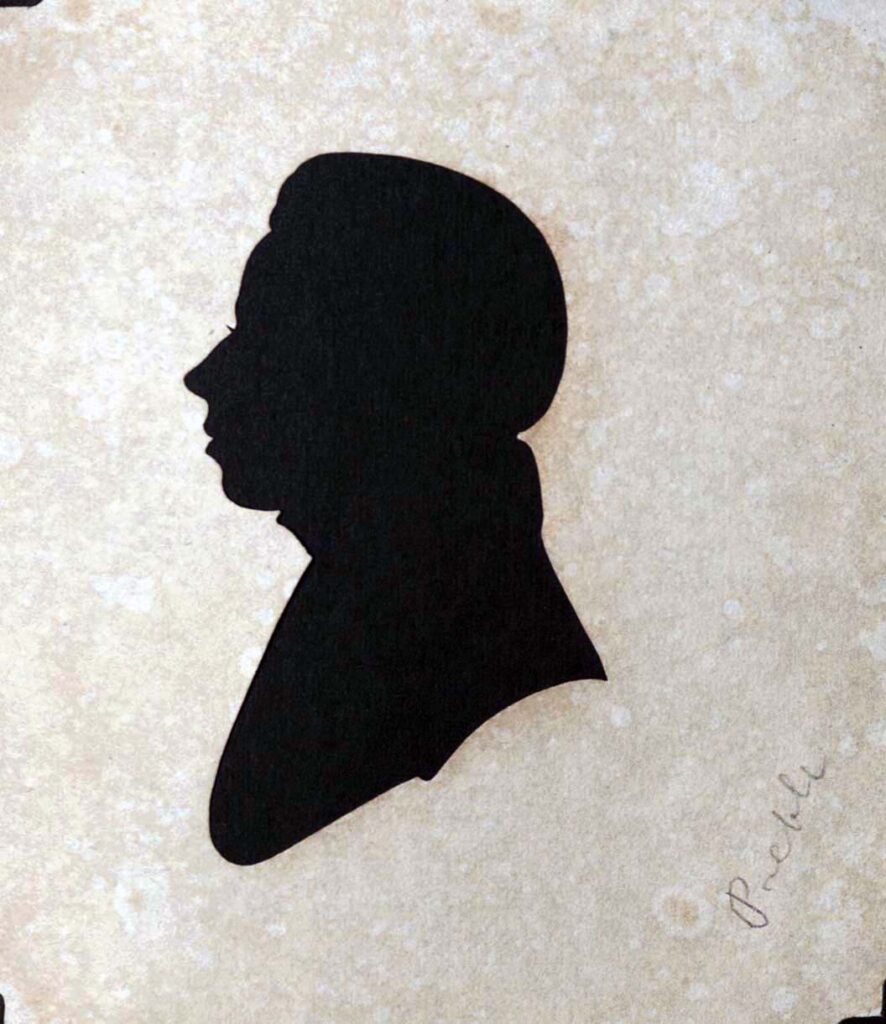
The Victim of Wealth
Born on February 22, 1806, Preble was the only child of American Revolutionary War and First Barbary War veteran Commodore Edward Preble and Mary Deering. The family occupied the mansion next to the Longfellows and the young Preble was boyhood friends with both Henry and Stephen, his future Bowdoin classmates. His charmed life was disrupted in the summer of 1807 with the premature death of his heroic father.
Like the Longfellow boys, Preble completed his first year of Bowdoin by studying remotely from Portland. When they arrived on campus for their sophomore year, all three boys roomed at Rev. Benjamin Titcomb’s house on Federal Street. The home would become famous years later as the house where Harriet Beecher Stowe wrote Uncle Tom’s Cabin. For his junior year, Preble roomed with another Portland friend, Patrick Henry Greenleaf in Room 13 of Winthrop Hall. His senior year, Preble lived alone in No. 7 Maine Hall. At Bowdoin, Preble showed a particular interest in literature. He joined the Athenean Literary Society and was inducted into Phi Beta Kappa.
Upon graduation, at the age of nineteen, Preble went into mercantile business with his relative Nathaniel F. Deering, but the drudgery of the business world did not suit his personality. Instead, he sought recreation and education abroad, traveling extensively in Europe and eventually enrolling at the University of Gottingen, where he mastered several languages. After two years, he returned to Maine where he studied law in the office of the Hon. Charles S. Daveis. His aim was not to practice law but to “to dignify his leisure hours, and to have the benefit of the example and guidance of the able counsellor and excellent scholar.” In 1833 Mr. Preble married Sophia E. Wattles, daughter of Nathaniel Wattles, Esq., of Alexandria, Va., by whom he had one son bearing the same name, and two daughters.
Wealth seems to have stifled Preble’s ambitions. According to one biographer, “What many young persons consider a favorable circumstance in life was to Mr. Preble, as it has been to countless others, its greatest evil. He was born to a fortune which, however, he did not live to possess; but the expectation of it, and the gratification of every desire, paralyzed exertion, rendered him versatile, morbid, and unhappy. With talents capable of high achievement, with considerable literary attainment, he failed of accomplishing anything useful by irresolution and want of a settled purpose of action.”
Preble may simply not have lived long enough to accomplish his life’s goals. He died of consumption shortly before his fortieth birthday. In a brief obituary notice published soon after his death, Mr. Daveis, remembered his law student as: “a gentleman in every sense, — of great courtesy and urbanity in his demeanor” who was “distinguished for the acquirements he had made in those pursuits to which he was most devoted.”